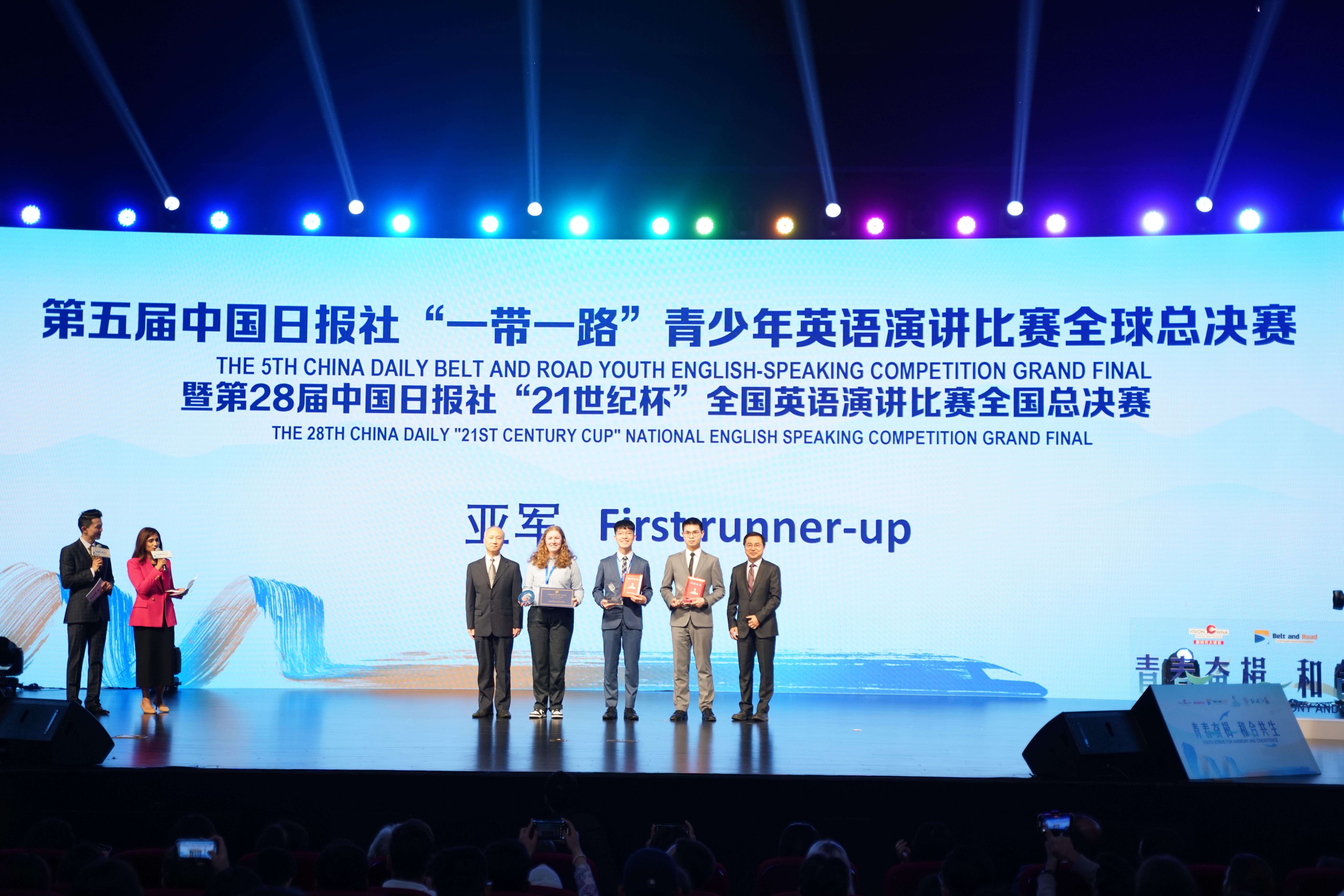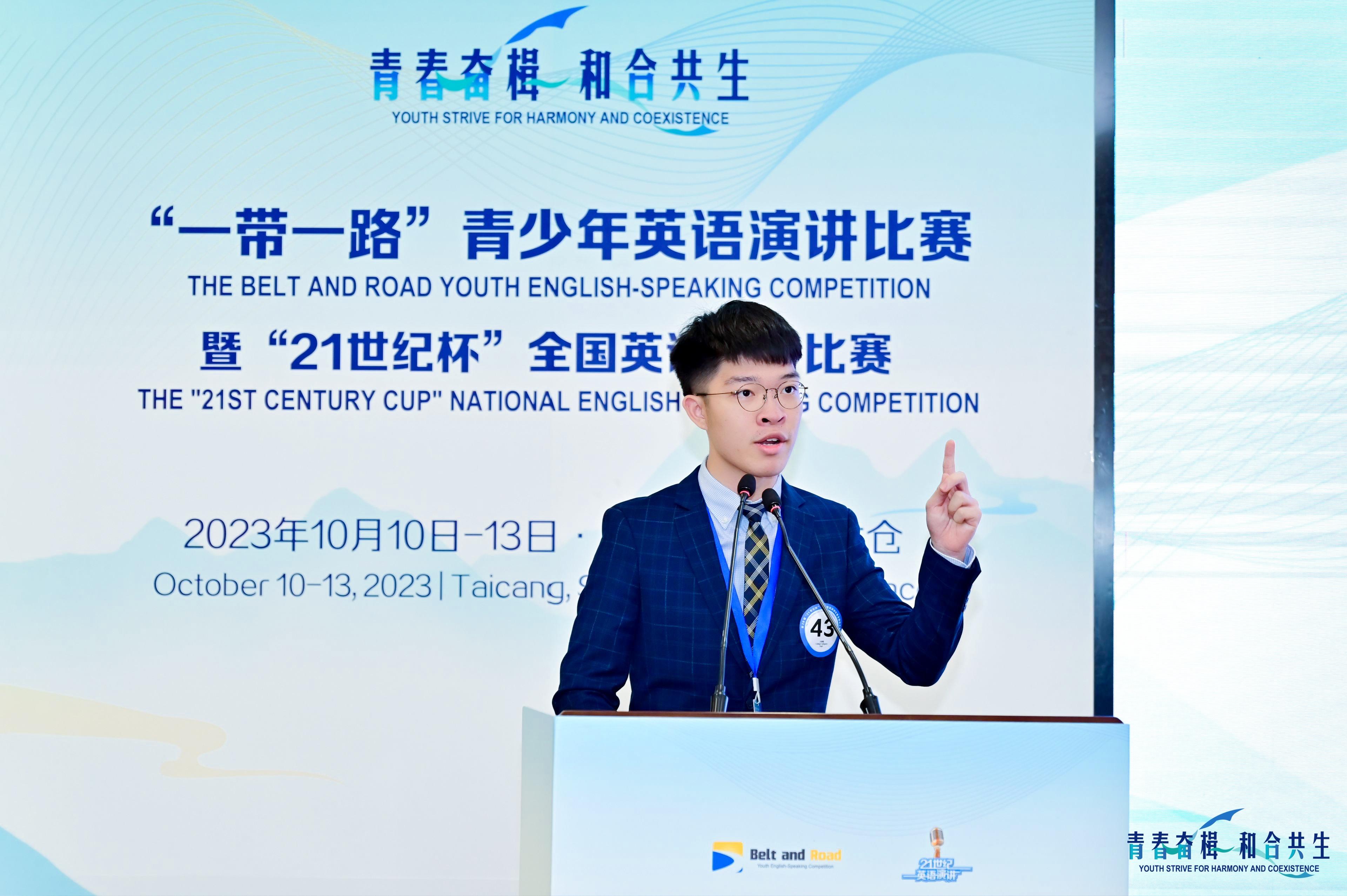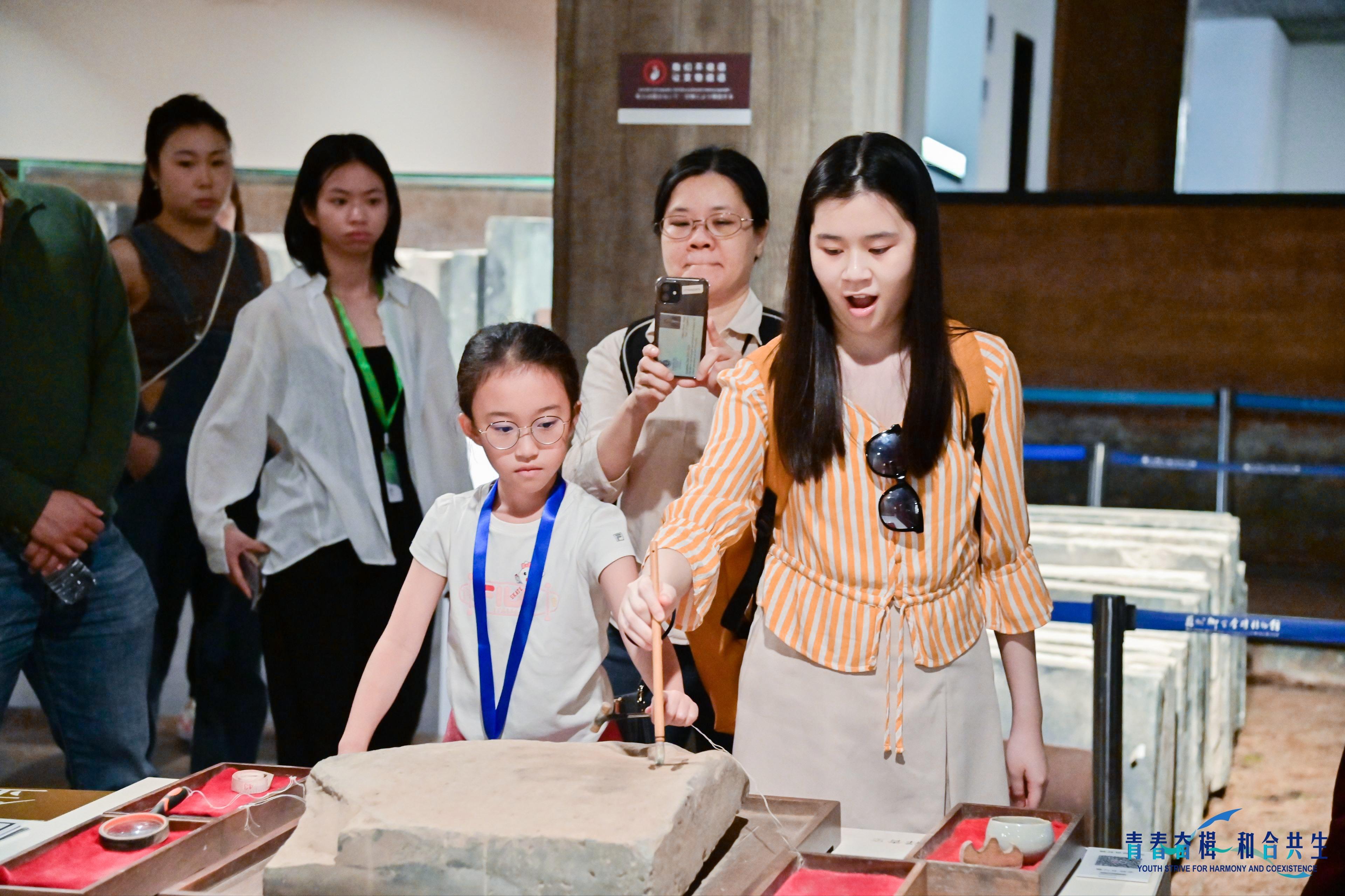 Wong Tsz-chun (center) from Hong Kong receives the first runner-up award in the university category at the 28th “21st Century Cup”
National English Speaking Competition National Grand Final, in Taicang, Jiangsu province, on Friday. Provided to China Daily
Wong Tsz-chun (center) from Hong Kong receives the first runner-up award in the university category at the 28th “21st Century Cup”
National English Speaking Competition National Grand Final, in Taicang, Jiangsu province, on Friday. Provided to China Daily
Wong Tsz-chun from Hong Kong finished as first runner-up in the national grand final university category of the “21st Century Cup” National English Speaking Competition, held on Friday in Taicang, Jiangsu province.
I felt like being able to have exchanges with other competitors was actually a bonus. — Wong Tsz-chun, a second-year medical student at the Chinese University of Hong Kong
Wong, a second-year medical student at the Chinese University of Hong Kong, excelled among the 88 contestants during the fiercely contested 28th edition of the three-day event.
Wong said he considered his achievement “a triumph”.
“I felt like being able to have exchanges with other competitors was actually a bonus,” Wong said. “Not only did we get to compete with one another, we also got to exchange our thoughts and ideas, and our backgrounds.”
 Wong Tsz-chun speaks at the 28th “21st Century Cup” National English Speaking Competition National Grand Final, in Taicang, Jiangsu province, on Friday. Provided to China Daily
Wong Tsz-chun speaks at the 28th “21st Century Cup” National English Speaking Competition National Grand Final, in Taicang, Jiangsu province, on Friday. Provided to China Daily
When faced with the grand final’s demanding topic — “Building bridges, igniting futures: Ways run parallel without interfering with one another” — Wong maintained his composure and delivered his speech in the style of a top-class orator.
He ended the speech by talking about China’s endeavors to narrow gaps internationally and domestically as such: “Every nation, generation, and culture is alike in its hope for a trajectory and right of prosperity and harmony, yet it is as important to challenge, as well as respect, the countless gaps and trajectories, each of their own remarkable past, present, and future shape in one day after another. Only then can the gaps among us be harmless to build the strongest of the bridges, and the spark of the future can be ignited, not by interference, but by mutual inspiration.”
I hope these young people can go beyond the competition, and become leaders of their own countries to foster this kind of communication. — James P. Mirrione, question-master and a professor at New York University
Wong’s interpretation of civilization in the semifinal convinced the adjudicators that he deserved to progress to the grand final. The question-master, James P. Mirrione, a professor at New York University, said he was impressed by Wong’s performance, saying, “It seemed like he was on fire.”
Mirrione said, “I was impressed by the quality of the contestants. I hope these young people can go beyond the competition, and become leaders of their own countries to foster this kind of communication.”
Two other Hong Kong contestants in the university category at the national finals — Zhou Yuxi and Li Suen-huen — stopped at the semifinals and won the third-tier prizes.
 Ang Zi-en (front row, left) and Sham Pui-yan (right), respective champions in the junior primary and senior secondary categories of the “21st Century Cup” National English Speaking Competition (Hong Kong Region), write on an imperial kiln brick during a trip to the Suzhou Museum of Imperial Kiln Brick on Thursday.
Provided to China Daily
Ang Zi-en (front row, left) and Sham Pui-yan (right), respective champions in the junior primary and senior secondary categories of the “21st Century Cup” National English Speaking Competition (Hong Kong Region), write on an imperial kiln brick during a trip to the Suzhou Museum of Imperial Kiln Brick on Thursday.
Provided to China Daily
Joining the three contestants in a two-day cultural tour of Taicang and Suzhou, another city in Jiangsu, were eight Hong Kong primary and secondary school students who had participated in the regional competition. The trip offered the youngsters an opportunity to enjoy the scenic cities and to spend time with their peers from Macao and Taiwan.
Initiated by China Daily in 1996, the “21st Century Cup” National English Speaking Competition is the most prestigious English-speaking competition in China. This year’s event, in tandem with the Belt and Road Youth English-Speaking Competition, which ran simultaneously, was designated as part of a special tribute to the Belt and Road Initiative, a far-reaching development unveiled by President Xi Jinping 10 years ago.


